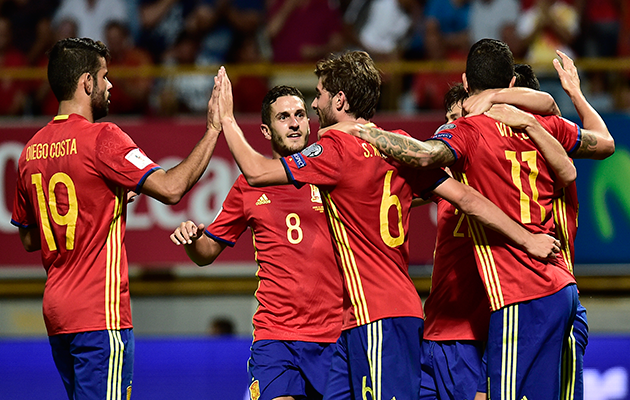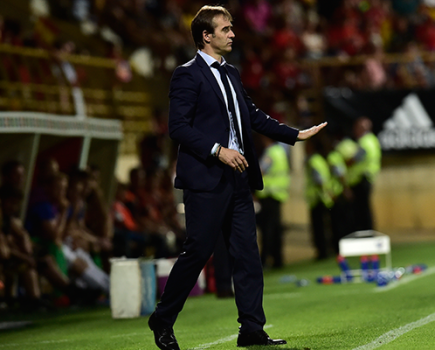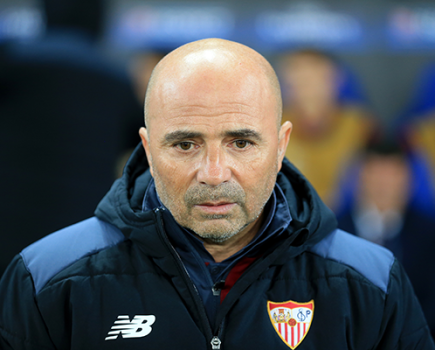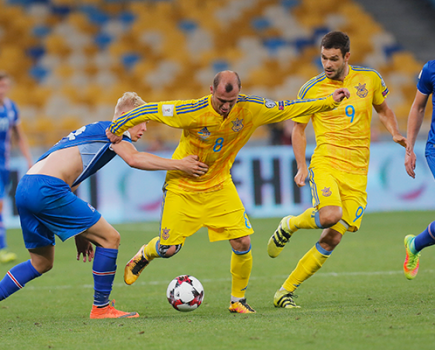There were so many goals that even the scoreboard lost count. At one end of the Reino de Leon stadium, it said 7-0; at the other, it said eight. The latter was right; the former had slipped behind after the sixth.
Spain’s first game under new manager Julen Lopetegui ended with an impressive friendly victory over Belgium that left their own debut-making coach Roberto Martínez admitting: “they were far superior”. Their second game, and their first competitive match, came three days later – and ended with a hammering. “Festival”, AS called it. 8-0. And 28-1 in shots.
It was only Liechtenstein, sure, but there were reasons to be cheerful.
Diego Costa produced his best performance for Spain against Belgium and then scored twice, including the opener in Leon – only his second and third goals for Spain and his first since 2014. “I went through a bad time but I knew the goals would arrive,” he said.
David Silva was superb, again, playing inside, rather than off the wing – and Lopetegui admitted that, while he plays further forward with the national team, Spain might be able to take advantage of his shift into the centre with Pep Guardiola at City.
Vitolo, added to the squad by the new manager, gave Spain dynamism and directness. For the first time in a long time, they had someone wide who largely stayed wide, going outside rather than in.
Sergi Roberto did not look out of place … in any place. At right back, his adopted position at Barcelona, he was good; in midfield, a role he appeared to have left behind, he was even better. “He gives us a tactical richness that’s important,” Lopetegui said
Forced off injured against Belgium, Morata came on and scored twice in barely a minute. “I was ready to play, but how can I complain when Costa plays and he’s in good shape … and when he dedicates me one of his goals,” Morata said. How can he complain when he comes on and gets two of us own? “Not long ago, people said we didn’t score goals,” Morata added.
Marco Asensio came on, ending for ever any hopes that the Netherlands had of claiming him through his Dutch mother.

New coach Julen Lopetegui appears to have an answer to some of Spain’s recent problems.
And Lopetegui showed that he might have some sort of solution for that age old problem the Spanish face: teams that sit deep and close down. That he thinks about solutions, variety and alternatives, at least. And, yes, again: it was only Liechtenstein. But, still.
At half time with the score only 1-0 and the pace of the ball slowing a little, Lopetegui made a change that altered the pattern of the game entirely. Spain shifted to what was almost a 3-3-3-1 formation and the pieces fell into place. Sergi Roberto into midfield and everywhere, Koke narrower, Silva more central, Vitolo opening the pitch to the right, Nolito to the left. “We couldn’t deal with the change,” Rene Pauritsch admitted.
“We can play in different ways: we had worked on it” Lopetegui said. This wasn’t Plan B in the old kick it long sense, this was a variation on a theme. The ball was Spain’s, the chances too. One after the other after the other. So were the goals: Costa, Sergi Roberto, Silva, Vitolo, Costa, Morata, Morata, Silva.
No wonder they lost count, so quick did they come. There was just one minute between the third and fourth and Spain scored four in ten minutes. Morata scored one minute and then scored again the next. And David Silva had barely stopped complaining about being denied the eighth by the linesman’s flag when he scored the eighth anyway.
8-0, it finished. That’s eight, Mr Scoreboard. It was also something of a record: Spain had not won a World Cup qualifier by as many goals since 1934.
***********************
There were no malfunctioning fax machines this time … and there wasn’t all that much money either.
This was an unusual transfer window in which Madrid and Barcelona didn’t so much tinker with their teams as strengthen their squads, not signing a superstar between them. (Which is not the same as spending no money, Barcelona’s outlay reaching 120m, while Madrid actually made a profit)
In which Atlético added attacking talent that so far has not managed more than a goal, and from penalty spot. And in which Sevilla’s transformation was as complete as ever – right down to the style.
A market in which it was Valencia who seemed headed for a crisis – Mustafi out, Negredo out, Alcacer out, Gomes out, financial fair play limitations very much in – but who may not be quite so badly off as it looked, securing Garay and Mangala on the final day.
Not that it was just about them; this was about the way in which so many of the Spanish clubs looked on England with envious eyes. And, of course, “come here” eyes too: English money helps Spanish teams survive. For now, at least.
While the Premier League €1,400m, Spain’s teams were closer to €500m, below the €570m they spent last summer.
In part, that may be circumstantial but it is also a trend. And if that English money wasn’t always well spent, that so little Spanish money was spent at all concerns a little – another sign of the increasing pace of the economic shift in power, driven by a Premier league TV deal that La Liga can’t compete with.
So far, Spanish football has competed on the pitch – outcompeted, perhaps – but the question is legitimate now: for how long?






